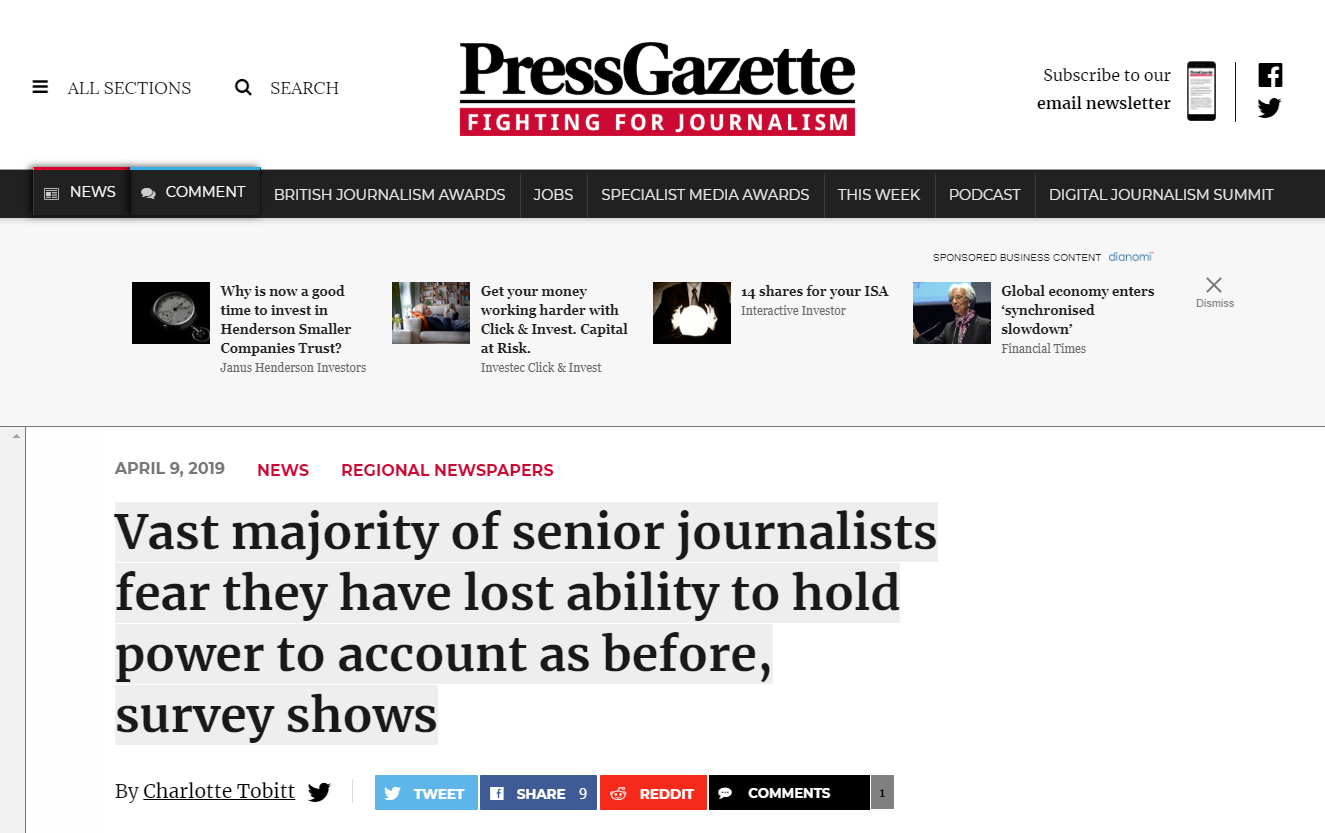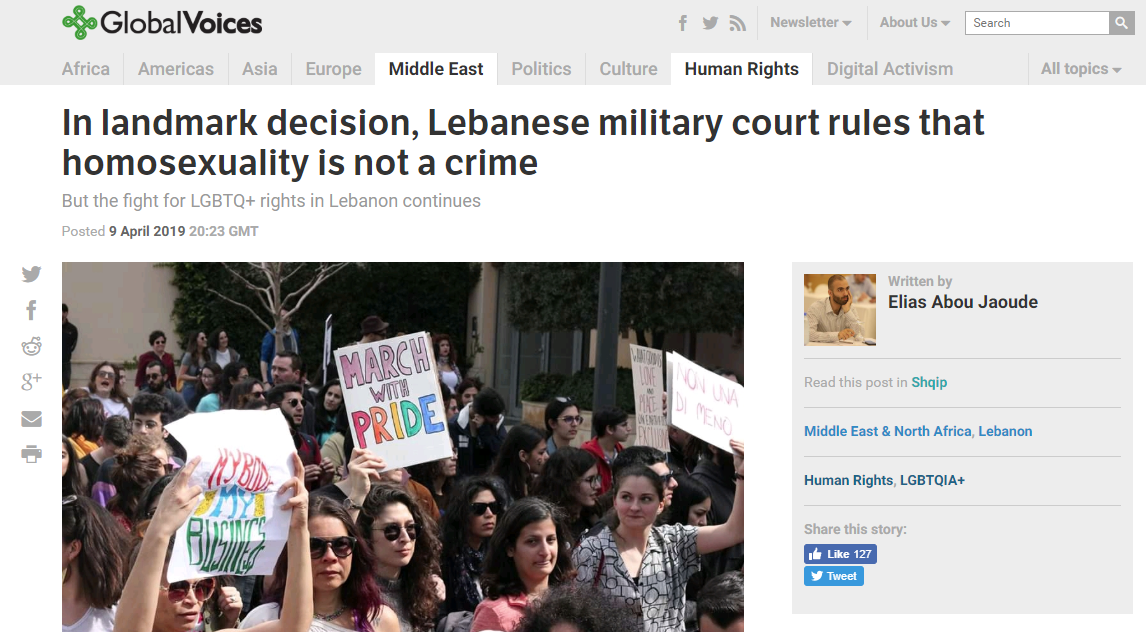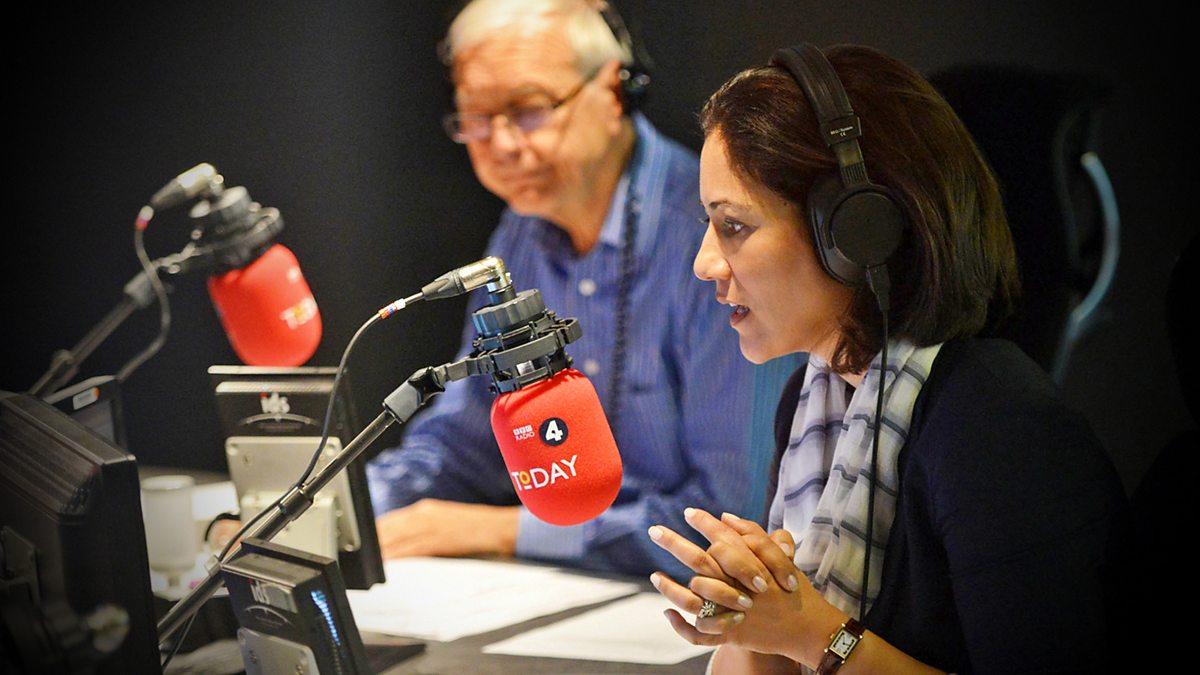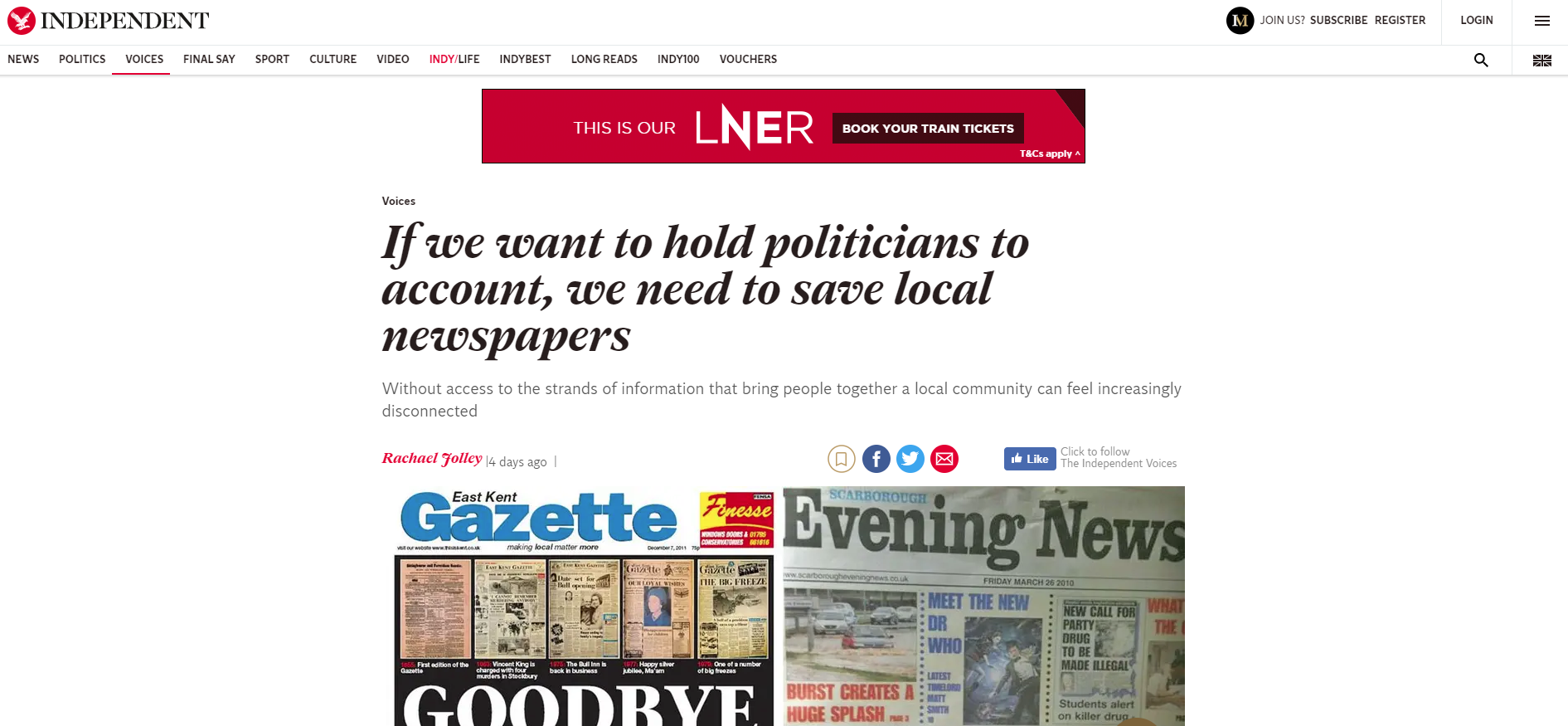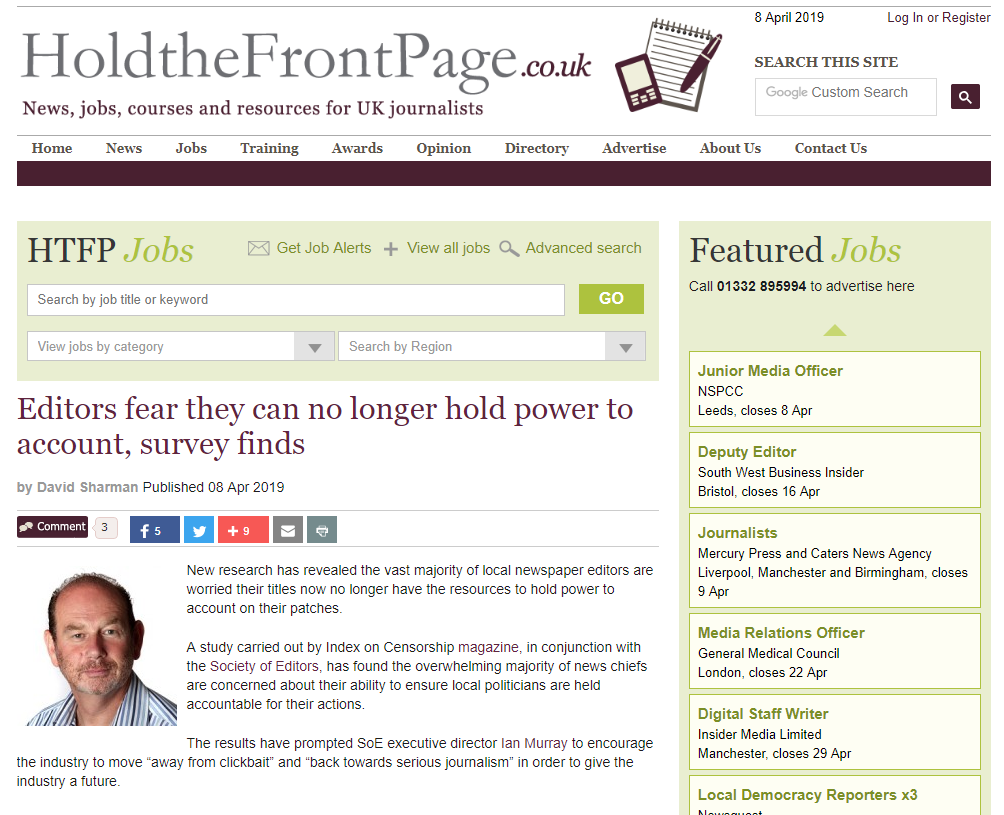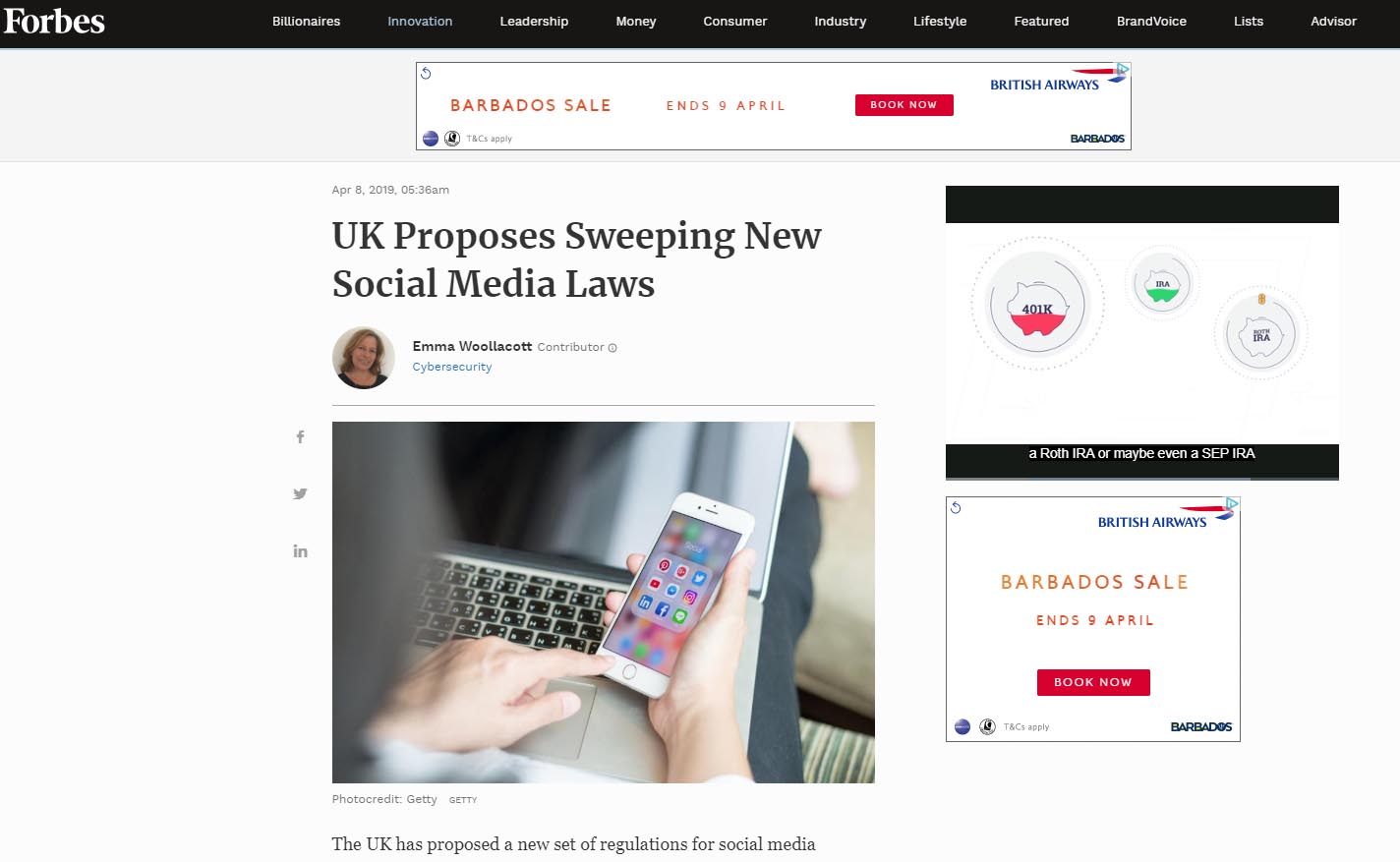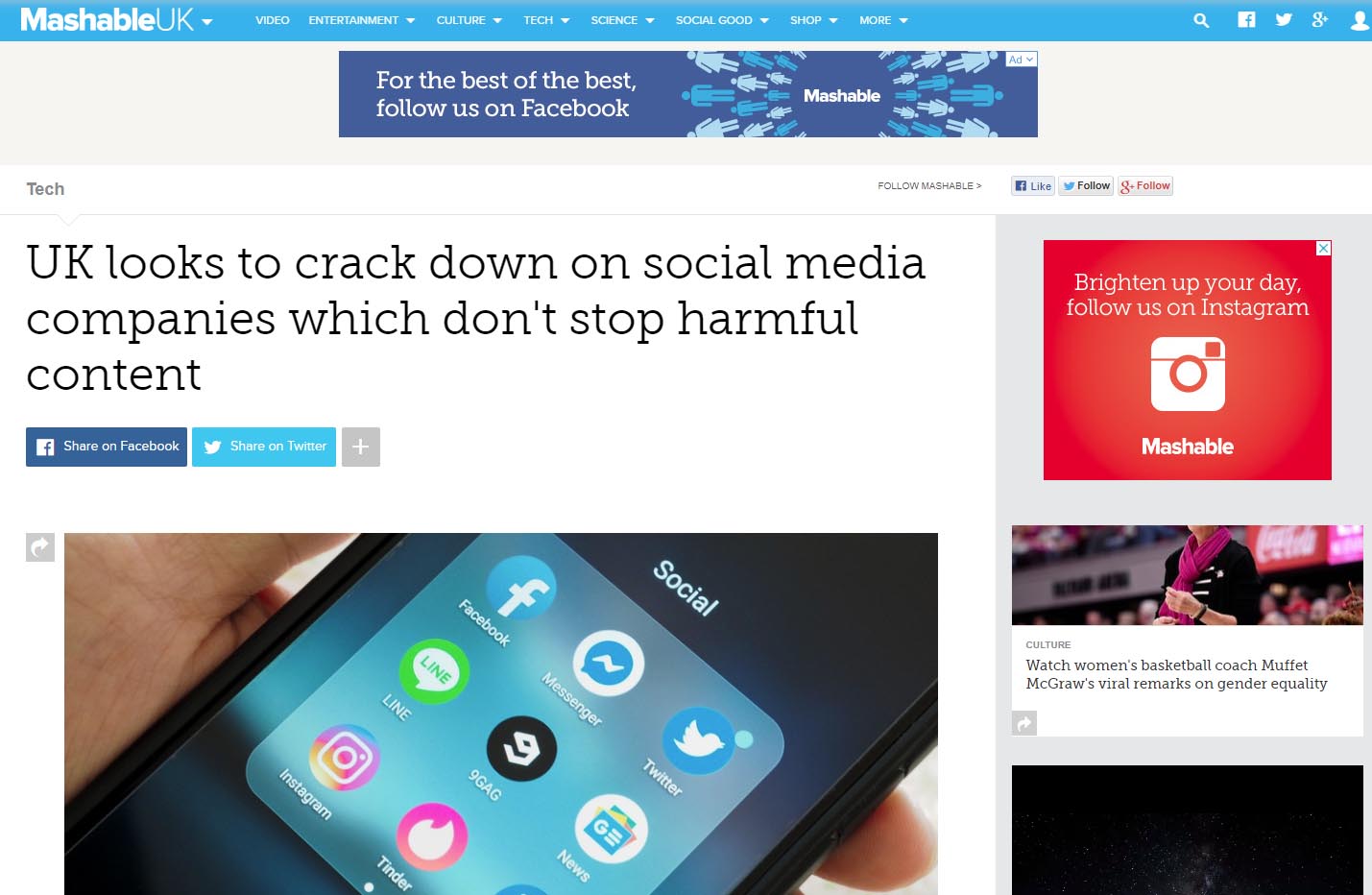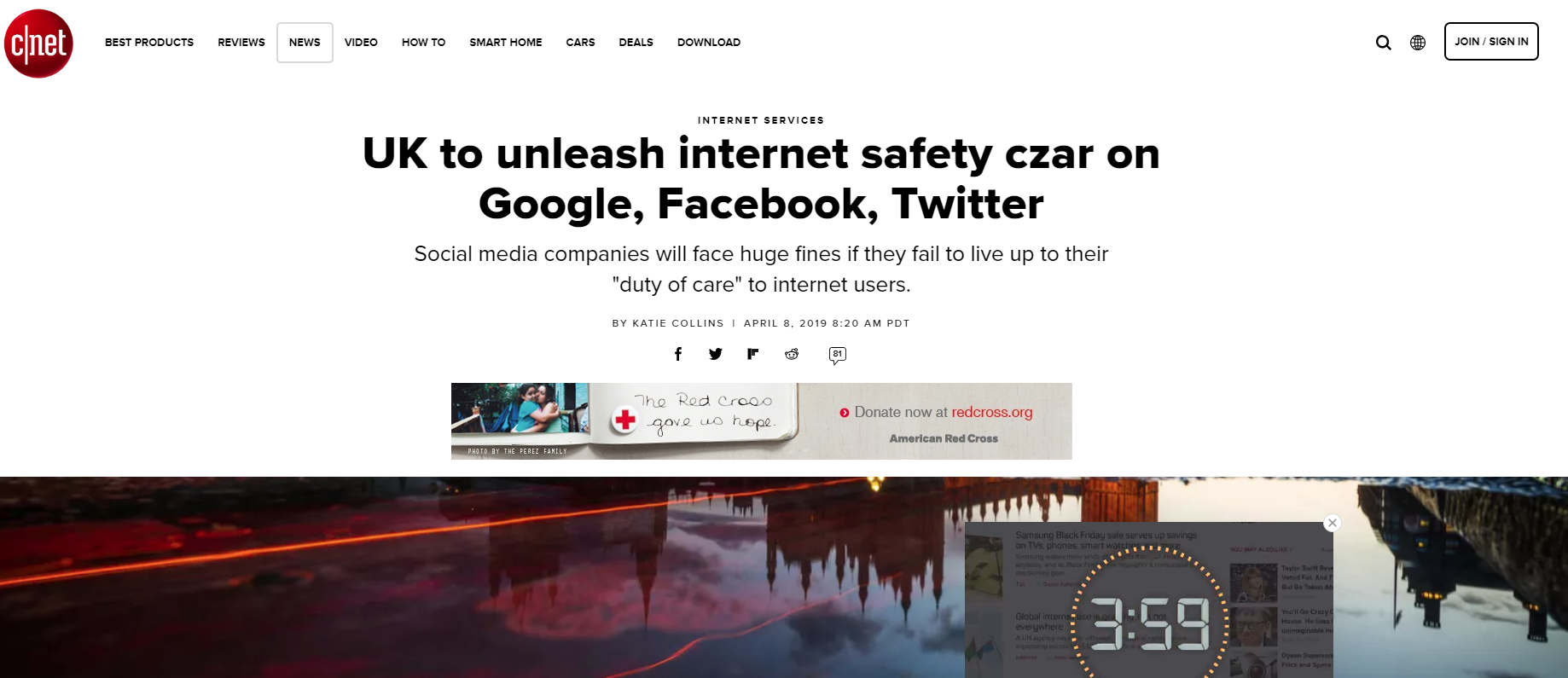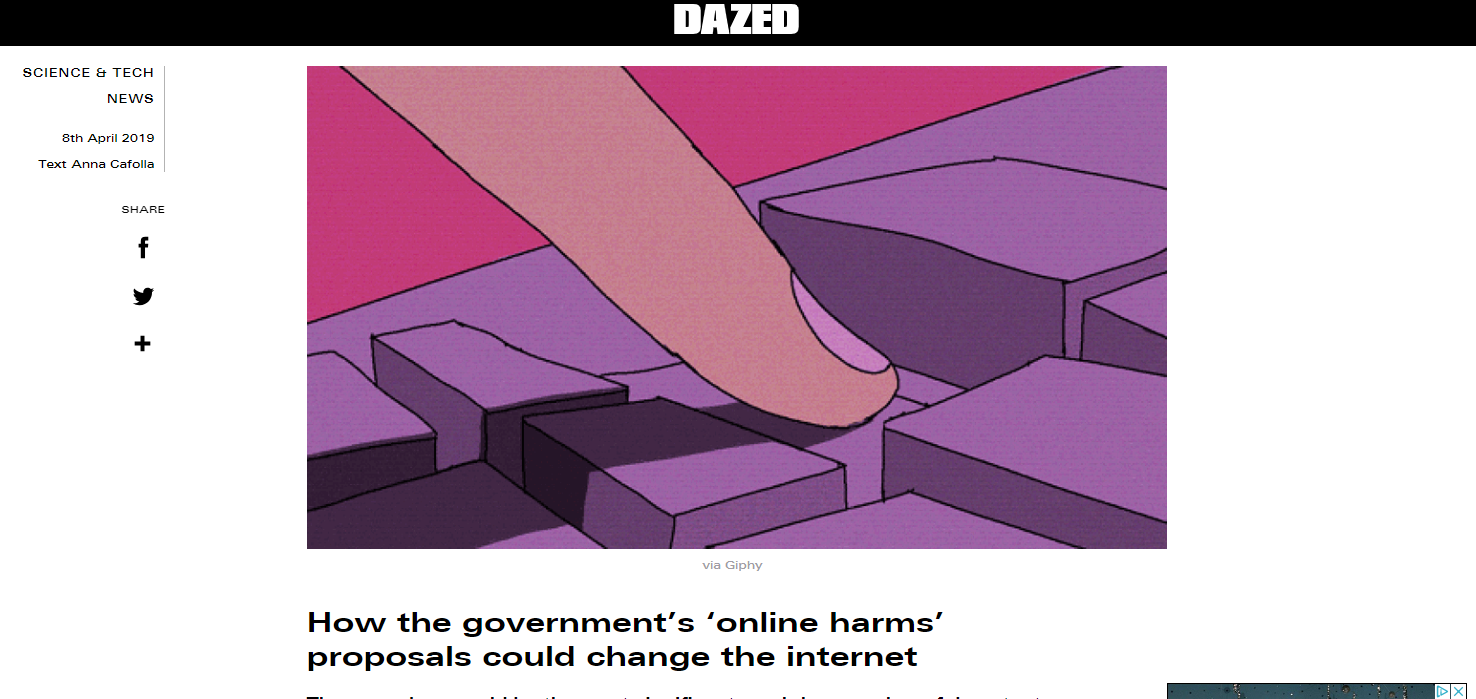Combine a legal duty of care with very large fines and personal criminal responsibility for senior managers, and you get a strong incentive for online platforms to remove lots of content.
CATEGORY: About Index
Vast majority of senior journalists fear they have lost ability to hold power to account as before, survey shows (Press Gazette,
The vast majority of senior local news journalists are concerned they do not have the resources to hold power to account in the way they once did, a...
In landmark decision, Lebanese military court rules that homosexuality is not a crime (Global Voices, 9 April 2019)
On March 30, 2019, a Lebanese military court ruled that homosexuality is not a crimeand refused to prosecute four individuals accused of the...
Joy Hyvarinen on the UK government’s online harms white paper (BBC Newshour, 8 April 2019)
“It’s very important that when you propose laws that will affect people on a very large scale, that it needs to be based on evidence and a thoughtful, careful approach because you can do a huge amount of damage,” Hyvarinen said.
Online harms proposals pose serious risks to freedom of expression
While we recognise the government’s desire to tackle unlawful content online, the proposals mooted in the white paper – including a new duty of care on social media platforms, a regulatory body, and even the fining and banning of social media platforms as a sanction – pose serious risks to freedom of expression online.
Joy Hyvarinen on the UK government’s online harms white paper (BBC Today, 8 April 2019)
“The government is under public pressure to be seen to be doing something about this problem,” Hyvarinen said.
If we want to hold politicians to account, we need to save local newspapers (Independent, 4 April 2019)
Without access to the strands of information that bring people together a local community can feel increasingly disconnected. Read the full article.
Editors fear they can no longer hold power to account, survey finds (Hold the Front Page, 8 April 2019)
New research has revealed the vast majority of local newspaper editors are worried their titles now no longer have the resources to hold power to...
UK Proposes Sweeping New Social Media Laws (Forbes, 8 April 2019)
Today, Silicon Valley is facing the backlash. Amid widespread concerns over fake news, influence campaigns, cybersecurity and the sharing of violent...
UK looks to crack down on social media companies which don’t stop harmful content (Mashable, 8 April 2019)
The UK is set to unveil new measures against the spread of harmful and violent content on the internet. The Online Harms white paper, set to be...
UK to unleash internet safety czar on Google, Facebook, Twitter (CNET, 8 April 2019)
The UK government is taking a hard line when it comes to online safety, moving to establish what it says is the world's first independent regulator...
How the government’s ‘online harms’ proposals could change the internet (Dazed, 8 April 2019)
In new proposals revealed today (April 8), social media companies will be legally required to protect users from harmful content on their platforms....
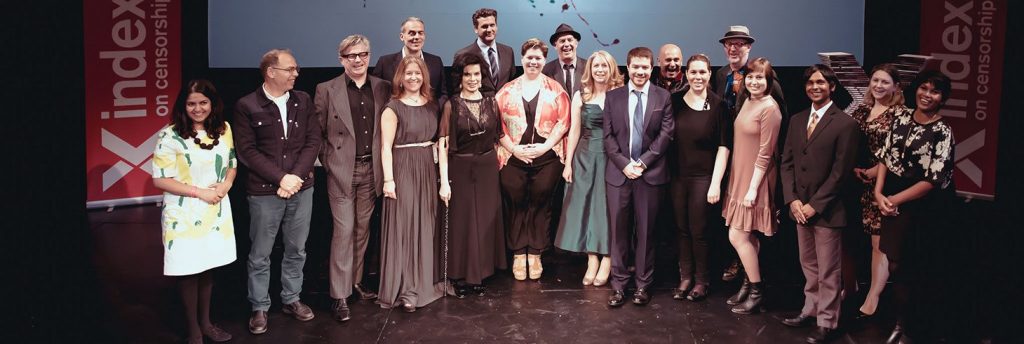 Index Awards 2017: Celebrating defenders of free expression
Index Awards 2017: Celebrating defenders of free expression
Index on Censorship is a nonprofit that campaigns for and defends free expression worldwide. We publish work by censored writers and artists, promote debate, and monitor threats to free speech. We believe that everyone should be free to express themselves without fear of harm or persecution – no matter what their views.
Index’s aim is to raise awareness about threats to free expression and the value of free speech as the first step to tackling censorship.
Index relies entirely on the support of donors and readers to do our work.
We work in four ways:
Informing
Index on Censorship publishes an award-winning quarterly magazine that has featured some of the world’s best-known writers. We publish original creative writing and articles about free expression from across the globe.
Our website offers additional information to help people understand the current threats to free expression globally. And we reach a wider audience through social media.
Influencing
Each year, Index on Censorship identifies some of the greatest threats to free speech around the world and develops advocacy campaigns to push for change in legislation or public attitudes. We choose topics where our work can make a significant impact – and deliberately choose areas where others might not be focused. You can see our current areas of focus on our Campaigns and Projects work.
We use a mixture of research, reporting, direct advocacy and media campaigning to achieve our goals.
Debating
Index on Censorship believes that free expression encourages more open and tolerant societies. We actively promote debate with an exciting series of events each year to help people better understand the value of free speech. This includes performances, exhibitions, talks and concerts. We are also regularly quoted in international media on free expression issues. Read more about our current events programme here.
Supporting
Index on Censorship directly supports groups and individuals facing censorship through our Freedom of Expression Awards Fellowship. The fellowship offers a year-long programme of tailored support to a small group of fellows selected for their outstanding work in the fields of journalism, arts, campaigning and digital advocacy. Read more about this innovative work here.


